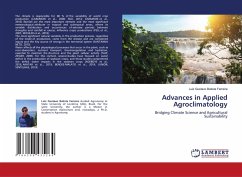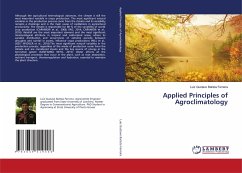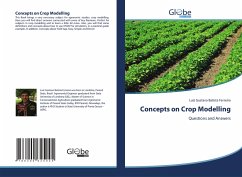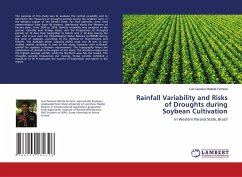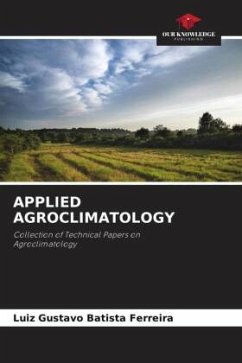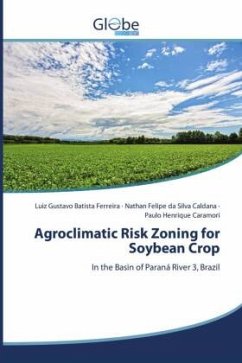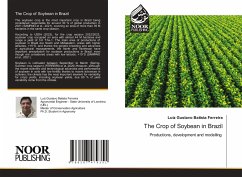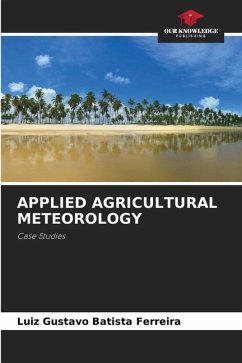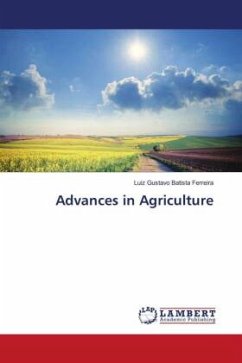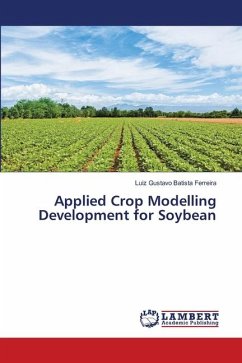
Applied Crop Modelling Development for Soybean
Versandkostenfrei!
Versandfertig in 6-10 Tagen
29,99 €
inkl. MwSt.

PAYBACK Punkte
15 °P sammeln!
In the context of global climate change and food security, environmental concerns and the preservation of native forests have, correctly, limited the agricultural expansion, and the appropriated alternative is increasing yields has higher relevance, instead of deforestation, to minimize the impact of the climate on the crops yields in Brazil and reducing yields gaps, aiming the supply of demand of food. The soybean crop is the most important crop in Brazil, being considered responsible for around 30 % of global production in 2021. Agrometeorological crop models can help the farmer for decision...
In the context of global climate change and food security, environmental concerns and the preservation of native forests have, correctly, limited the agricultural expansion, and the appropriated alternative is increasing yields has higher relevance, instead of deforestation, to minimize the impact of the climate on the crops yields in Brazil and reducing yields gaps, aiming the supply of demand of food. The soybean crop is the most important crop in Brazil, being considered responsible for around 30 % of global production in 2021. Agrometeorological crop models can help the farmer for decision-making and for agricultural planning, such as crop adaptation, chose the best cultivar for a given local, the best time to sowing, crop monitoring, plant density, forecasting and even for control the pest and disease incidences. Tools, such as crop models, has been developing aiming to explain the great interactions between crops, crops management and weather conditions.





